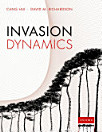Invading Ecological Networks
janv. 2022 · Cambridge University Press
Ebook
456
Pages
reportLes notes et les avis ne sont pas vérifiés En savoir plus
À propos de cet ebook
Until now, biological invasions have been conceptualised and studied mainly as a linear process: from introduction to establishment to spread. This volume charts a new course for the field, drawing on key developments in network ecology and complexity science. It defines an agenda for Invasion Science 2.0 by providing new framings and classification of research topics and by offering tentative solutions to vexing problems. In particular, it conceptualises a transformative ecosystem as an open adaptive network with critical transitions and turnover, with resident species heuristically learning and fine-tuning their niches and roles in a multiplayer eco-evolutionary game. It erects signposts pertaining to network interactions, structures, stability, dynamics, scaling, and invasibility. It is not a recipe book or a road map, but an atlas of possibilities: a 'hitchhiker's guide'.
Quelques mots sur l'auteur
Cang Hui is a Professor of Mathematical Biology and holds the South African Research Chair in Mathematical and Theoretical Physical Biosciences at Stellenbosch University. He is a trustee of the International Initiative for Theoretical Ecology. He has published widely on biological invasions and ecological networks.
David M. Richardson is Director of the Centre for Invasion Biology at Stellenbosch University. He is a member of the Species Survival Specialist Group on Invasive Organisms for the International Union for Conservation of Nature. His main expertise is in invasion ecology, and particularly alien tree invasions. He has published extensively on invasive species and restoration ecology.
Attribuez une note à ce ebook
Faites-nous part de votre avis.
Informations sur la lecture
Téléphones intelligents et tablettes
Installez l'appli Google Play Livres pour Android et iPad ou iPhone. Elle se synchronise automatiquement avec votre compte et vous permet de lire des livres en ligne ou hors connexion, où que vous soyez.
Ordinateurs portables et de bureau
Vous pouvez écouter les livres audio achetés sur Google Play en utilisant le navigateur Web de votre ordinateur.
Liseuses et autres appareils
Pour pouvoir lire des ouvrages sur des appareils utilisant la technologie e-Ink, comme les liseuses électroniques Kobo, vous devez télécharger un fichier et le transférer sur l'appareil en question. Suivez les instructions détaillées du centre d'aide pour transférer les fichiers sur les liseuses électroniques compatibles.





